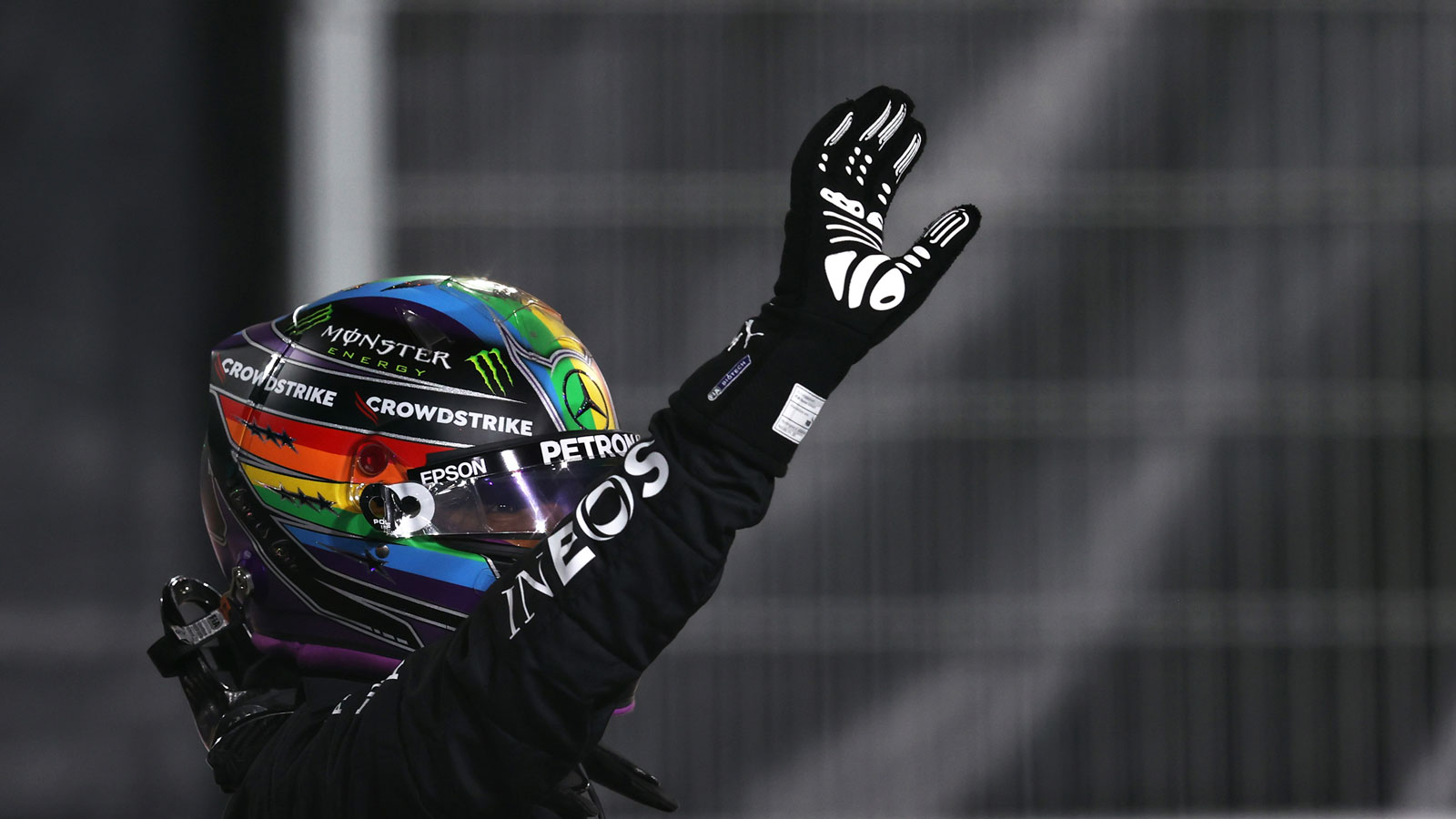The UK Government Can't Rely On Lewis Hamilton To Solve All Its Problems
Lewis Hamilton is in the spotlight after his team partnered with a producer of flammable building materials. But it's not his job to fix all the sport's issues.
As Lewis Hamilton once said, "Cash is king" in Formula 1. If you've got the money to spend, almost anything is possible.
With the right budget, you can get your son a seat on the grid, construct a new race track in record time, or travel to countries with questionable human rights records to host events.
Now, it turns out, the right amount of cash can bring a disgraced building supply maker onto the reigning champions' car.
This week, the Mercedes AMG Petronas F1 team announced a new sponsorship deal with building materials manufacturer Kingspan. And since it was announced, the deal has sparked outcry from people in and out of the motorsport bubble.
That's because in 2017, Kingspan and its building materials were linked to a fire at an apartment block in west London that killed 72 people. The fire at the Grenfell Tower spread up the sides of the building as cladding and insulation created by Kingspan, Arconic and Celotex ignited.
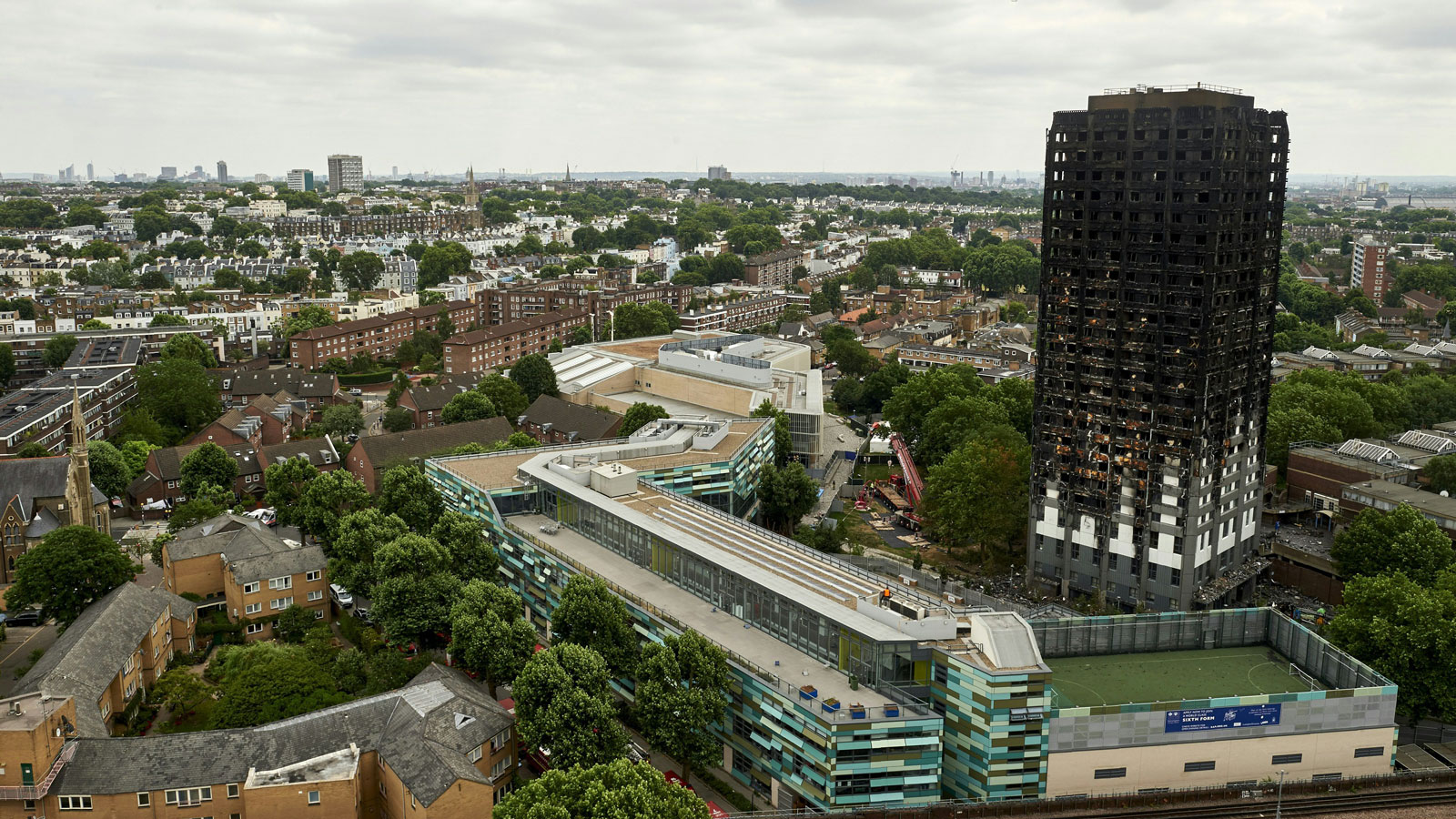
While Kingspan created just five percent of the insulation found on the building, it has since been heavily involved in an inquiry into the disaster, which has been ongoing since 2017.
And so far, that inquiry has uncovered a toxic environment at the company in the run up to the Grenfell disaster. As The Guardian reports:
"Emails from a Kingspan technical manager after he was questioned by potential customers about the fire safety of the boards in which he said the customer 'can go f#ck themselves, and if they are not careful we'll sue the a#se [off ] them'."
Now, the presence of the Kingspan logos on the W11 has, predictably — and rightfully — caused outrage. A group of survivors from the tragedy, Grenfell United, has called on Mercedes to scrap the deal, and UK politician Michael Gove has written to Mercedes team principal, Toto Wolff, urging the team to "reconsider this commercial partnership."
I have written to @MercedesAMGF1 asking them to reconsider their partnership with cladding firm Kingspan. You can read my letter here 👇 pic.twitter.com/2F7eqmOGql
— Michael Gove (@michaelgove) December 3, 2021
And that's one of the issues at the heart of this latest controversy. Yes, Lewis Hamilton is a Mercedes driver, and he pilots the car that's now emblazoned with Kingspan logos. He isn't the one signing sponsorship deals. But his name is the one that will generate outrage.
It's not up to him to fix this situation, the UK government should have been able to sort this mess out years ago. In fact, its response to the tragedy has been so lapse that estimates suggest there are still hundreds of buildings in the UK fitted with flammable cladding. After four years!
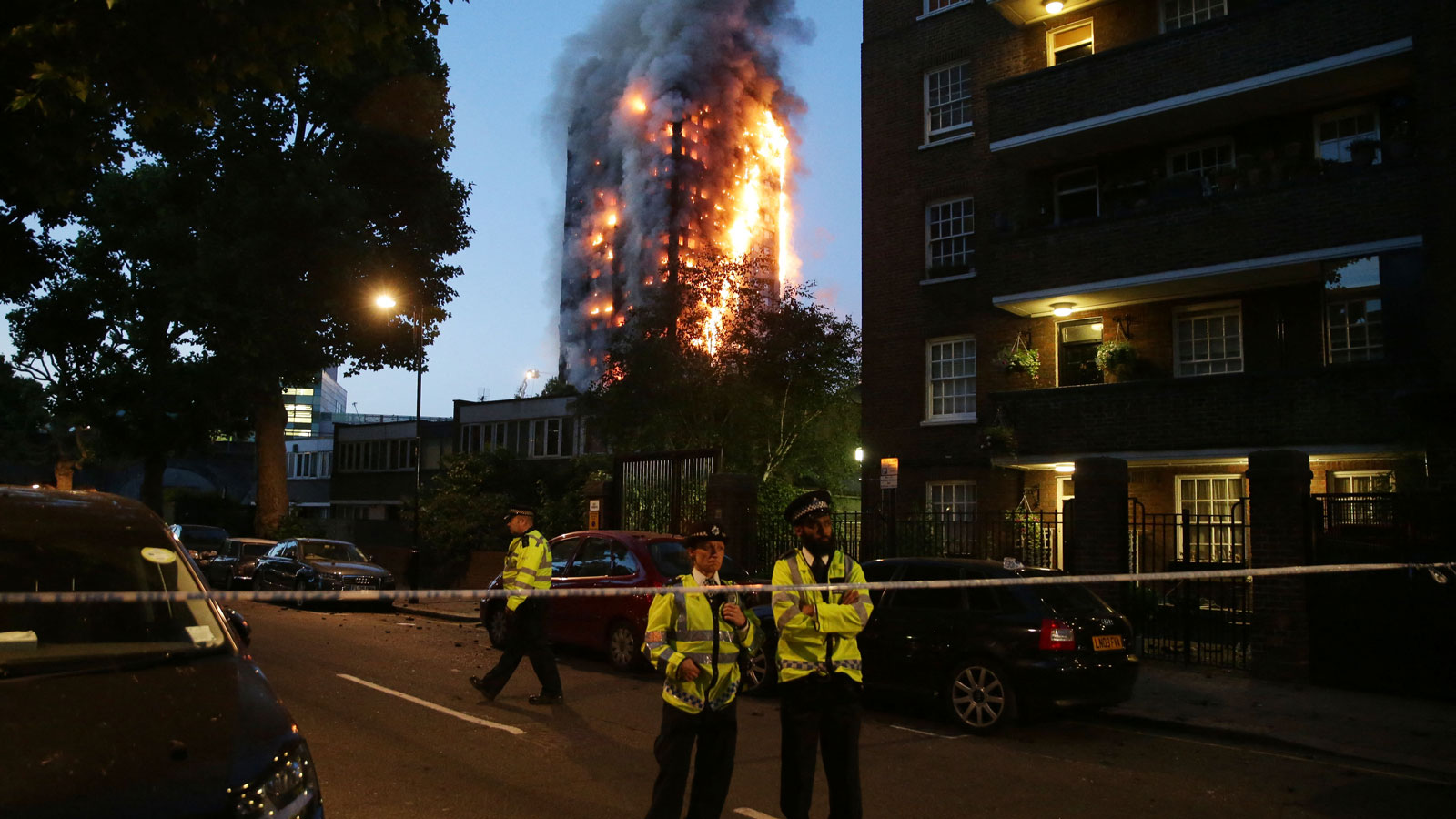
On top of this government failure, responsibility squarely falls on the shoulders of Mercedes. The outcry following the announcement is deserved and begs the question, how did this deal ever come to fruition?
As Grenfell United put it in a letter to Wolff, how did the team decide that it was "happy to partner with this wholly unethical company?"
"The bereaved and survivors of Grenfell are, therefor, requesting that you immediately sever your relationship from a company who forced hazardous products into the marketplace.
"It cannot just be 'business as usual'. We hope you can demonstrate that ethics and values do exist in F1."
Grenfell United are right to question the presence of morals in motorsport, as there has been a long history of questionable companies making their mark on the F1 paddock.
If you take a walk down the grid this afternoon in Saudi Arabia, which is a whole issue of its own, you'll see Aramco and Cognizant emblazoned on the track and the cars. Both these companies are hardly beacons of good morals.
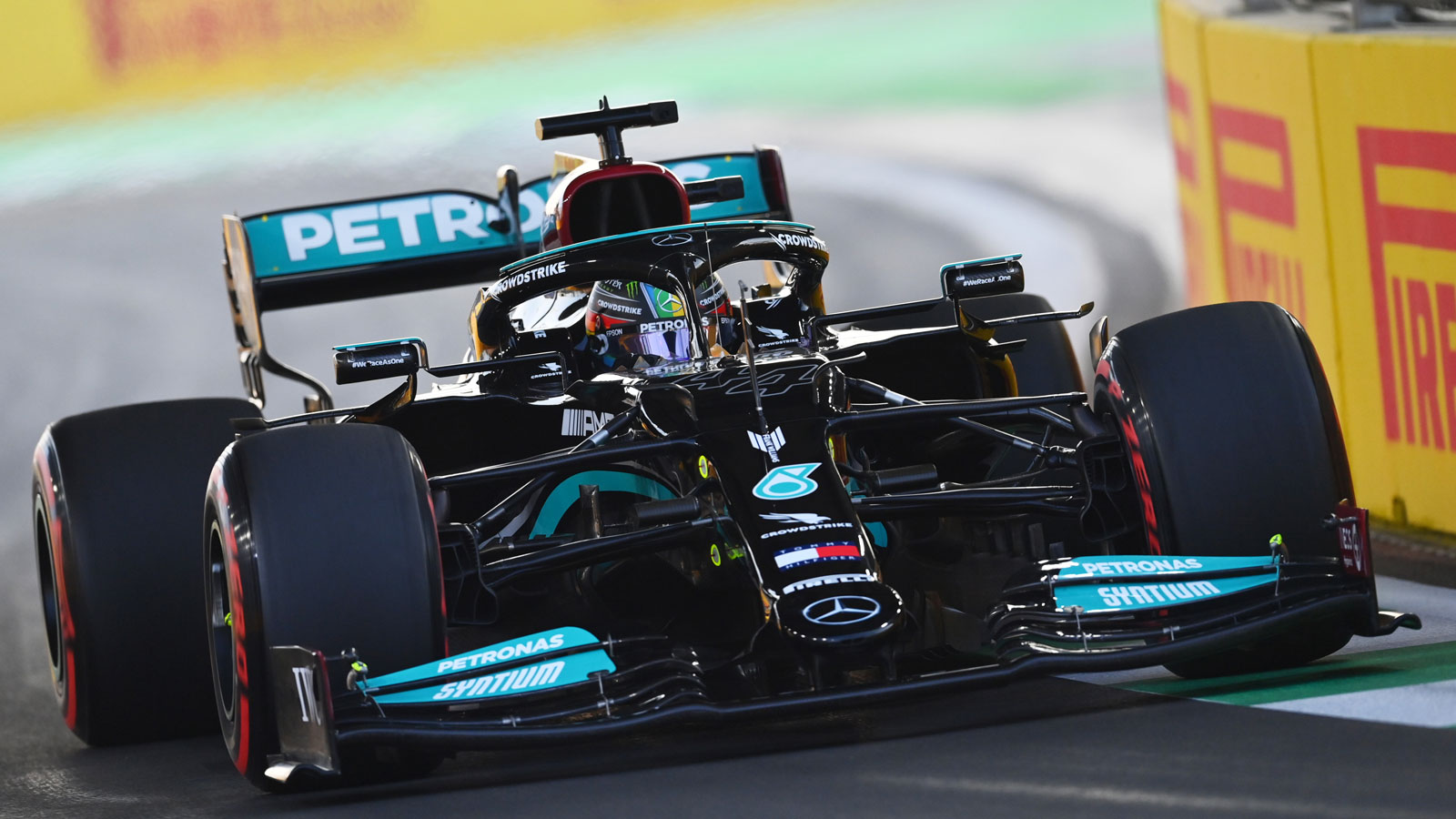
As well as the fact that oil collection and refinement comes with ample ecological issues, Saudi Arabia-backed Aramco is tied to the Kingdom's mixed human rights records. Cognizant, meanwhile, is one of the tech companies behind Facebook's moderation of graphic content on the site. It has also been wrapped up in bribery charges, as reported by CBS.
Companies such as this and their current presence on the grid by no means exclude Mercedes of any criticism. This new deal with Kingspan won't have been written up overnight, and instead will have come with weeks, if not months, of negotiation.
Through this time, members of the team must have noticed the allegations of malpractice following the Grenfell fire.
Kingspan has tried to distance itself from the tragedy, and a statement shared by Reuters said the company had no knowledge its products were used on Grenfell.
The publication reports:
"Kingspan said in a separate statement that it had played no role in the design of the cladding system on Grenfell Tower, where its K15 product constituted approximately 5% of the insulation.
"It added that this 'was used as a substitute product without Kingspan's knowledge in a system that was not compliant with the buildings regulations'."
Regardless, it is still a public company tied up in a public inquiry into a disaster that killed 72 members of the public. That's something Mercedes should have considered through the process of signing this deal.
It may try and hide this misplaced trust under the guise of sustainability and more eco-friendly construction practices, but that shouldn't excuse Kingspan of the wrongs it has committed in the past.
A letter from Toto Wolff to Grenfell United. pic.twitter.com/OcczmEP4yA
— Mercedes-AMG PETRONAS F1 Team (@MercedesAMGF1) December 3, 2021
To address this, Mercedes issued a later statement that said it had "engaged with Kingspan in depth to understand what role their products played in what happened at Grenfell."
It also repeated Kingspan's line that its products were used without its knowledge as a substitute that was "not compliant with building regulations." Wolff also said he would be happy to meet with Grenfell United to "understand better" the group's issues with the partnership.
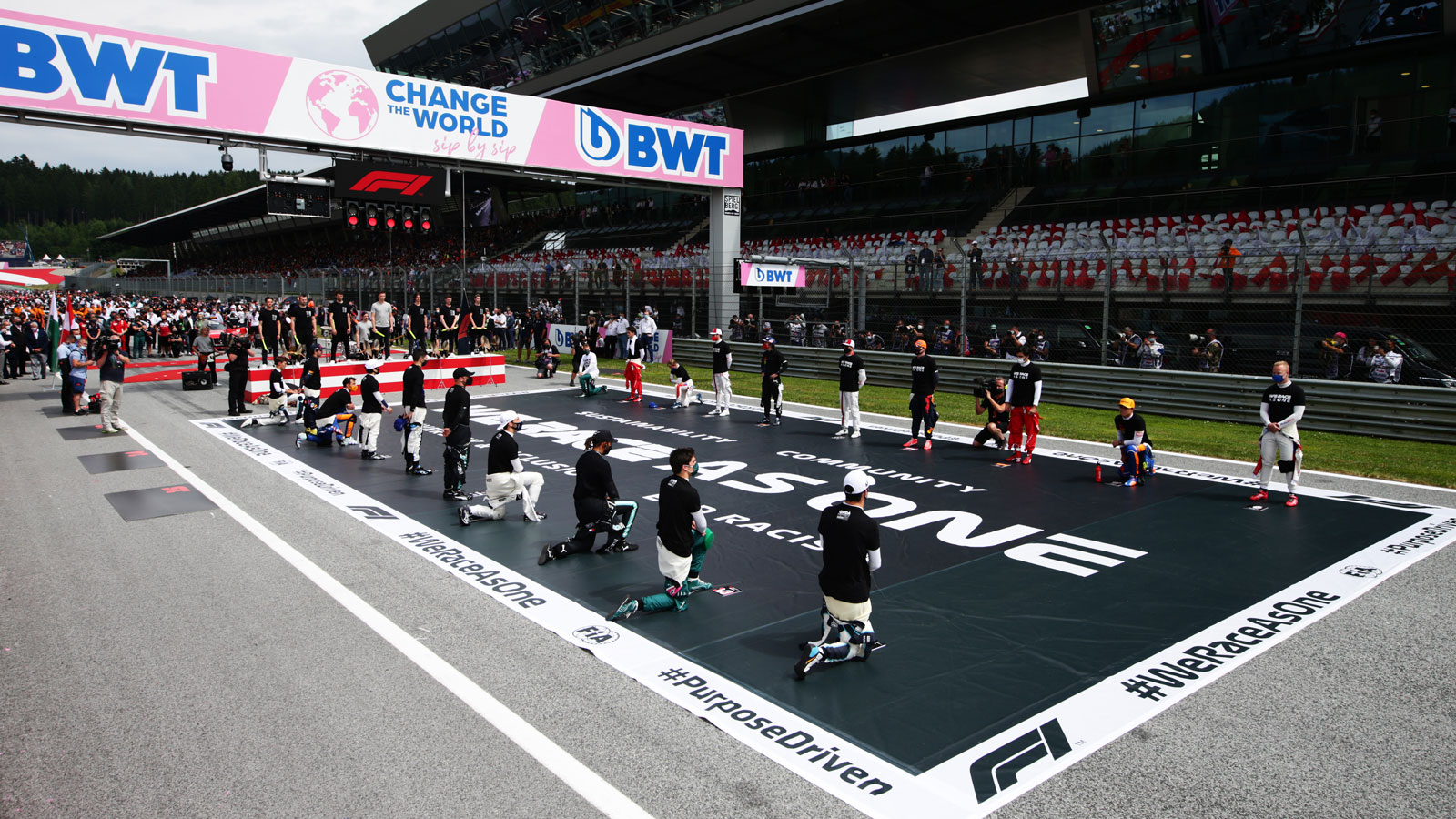
But these checks should have been made weeks ago. And if they had been made, the team shouldn't be happy to profit off a company that has caused so much pain to so many.
As drivers like Lewis Hamilton and Sebastian Vettel are showing this year, the sport has the ability to rise up as a platform for good. But as long as teams and organizers continue to follow the money, very few viewers will be able to believe F1's message that "We Race As One."
